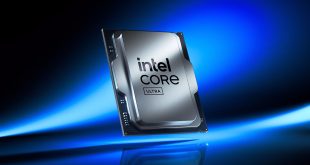ARM Holding this week said it has signed its 50th licensing agreement for its ARMv8-A technology, which includes support for 64-bit computing. The milestone indicates growing popularity of ARM’s 64-bit technology among developers of various system-on-chips. It is likely that going forward the adoption of the ARMv8-A will accelerate.
ARM traditionally reveals no details about its customers, but it did say that at present there are 27 licensees of the ARMv8-A technology. Among the licensees there are all of the top 10 companies who sell application processors for smartphones, nine of the top 10 application processor companies for tablets as well as designers of chips for consumer electronics, network equipment and servers.
According to ARM, the cumulative 50 licenses are now spread across ARMv8-A architecture and ARM Cortex-A57 and Cortex-A53 processors, which means that the company does not count its next-generation code-named Artemis and Maya 64-bit cores at the moment (those cores are also available for licensing).
“ARMv8-A technology brings multiple benefits, including 64-bit capability alongside improved efficiency of existing 32-bit applications,” said Noel Hurley, general manager, processor division, ARM. “Tablets and smartphones are quickly replacing PCs for many tasks and the ARMv8-A Cortex-A57 and Cortex-A53-based chips developed by our Partners support this transition with important enhancements in performance and efficiency. These ARMv8-A platforms are also fully backward compatible and will efficiently execute over a million 32-bit apps and extensive software assets already in use.”
ARM originally started to develop its 64-bit processing architecture in 2007. The company began to license the ARMv8-A technology in late-2011.
Discuss on our Facebook page, HERE.
KitGuru Says: It is interesting to note that back in July, 2014, ARM said it had signed 50 ARMv8-A licenses with 28 licensees. This indicates that the company has already began to license the Artemis and Maya cores, but does not want to make any emphasis on this due to possible demand from the actual licensees.
 KitGuru KitGuru.net – Tech News | Hardware News | Hardware Reviews | IOS | Mobile | Gaming | Graphics Cards
KitGuru KitGuru.net – Tech News | Hardware News | Hardware Reviews | IOS | Mobile | Gaming | Graphics Cards



